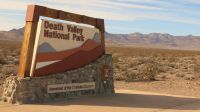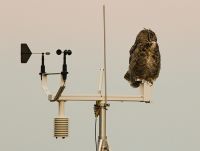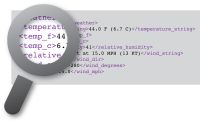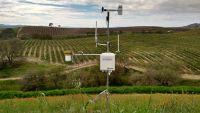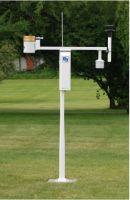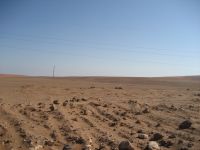The Campbell Scientific Blog Your source for useful how-to information and helpful expert advice
Displaying 1 - 8 of 8 articles tagged with: Weather Station
But It’s a Dry Heat… like a Furnace
Author: Dirk Baker | Last Updated: 06/21/2021 | Comments: 6
In this article, I'll share my experience collaborating on a research project to record some extreme weather conditions that may even set a world record! On August 16, 2020, the weather station located at Furnace Creek in Death Valley National Park (California, USA) recorded a temperature... read more6 Tips to Protect Your Weather Station from Birds
Author: Robin Deissinger | Last Updated: 05/25/2016 | Comments: 0
You’ve got your weather station set up and running, your data is coming across just fine, and then a bird decides your station is a wonderful place to make a home. That’s great for the bird, but not so great for the performance of your... read moreHow to Access Live Measurement Data Using Modbus
Author: Paul Smart | Last Updated: 04/07/2016 | Comments: 24
Did you know that you can turn your Campbell Scientific data logger into a Modbus TCP/IP server? Do you know why that’s a good idea? Campbell Scientific data loggers are commonly used as Modbus server devices. This means that the data logger is configured to... read more5 Steps to Post Your CR6 Data to Weather Underground
Author: Sam Utley | Last Updated: 03/23/2016 | Comments: 10
Note: It appears that after this blog article was written, Weather Underground has been phasing out the “PWS – Upload Protocol.” The following tutorial may or may not work currently or in the future. However, it continues to offer some insight into structuring a CRBasic... read more6 Steps to Easily Parse Data from a Trusted Source
Author: Gary Roberts | Last Updated: 03/02/2016 | Comments: 1
Would it be helpful to include data from a reputable source with your own data? If you have permission to use another source’s data for free or by agreement, how can you easily extract the specific data you want to use without doing a lot... read moreMeet Our 2015 Photo Contest Winners
Author: Robin Deissinger | Last Updated: 10/28/2015 | Comments: 4
We asked our integrators, those folks who sell and install our products, to send us their best photos of Campbell Scientific equipment operating in the field. From all of their submissions, we selected a photo from Western Weather Group as the first-place winner. Runners-up photo... read more8 ET Station Components that Need Regular Maintenance
Author: Bruce Smith | Last Updated: 09/23/2015 | Comments: 0
Like most machines, automated weather stations require regular maintenance to provide you with better performance and longer life expectancy. A weather station designed to calculate evapotranspiration (ET) for commercial agriculture and irrigation scheduling has a number of components that require maintenance and calibration. Based on... read moreHow to Prevent Skipped Scans and a Sunburn
Author: Jacob Davis | Last Updated: 06/17/2015 | Comments: 3
Through programming, relatively slow SDI-12 measurements can coexist, without problems, alongside fast measurements. To illustrate the need for accommodations in your data logger program, I will share the story of the worst sunburn I ever got. Southern Peru is near the Pacific Ocean, yet is... read more











